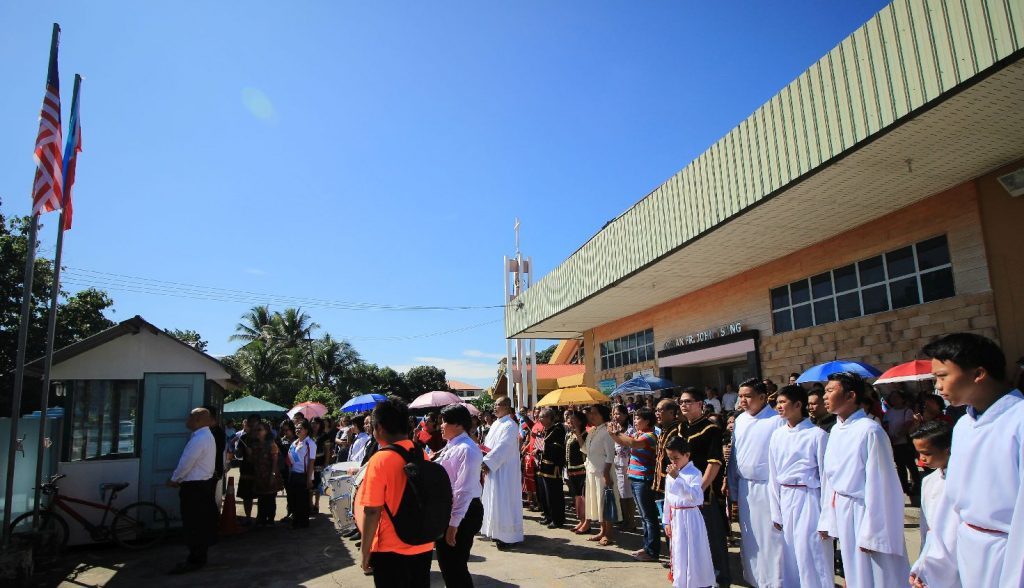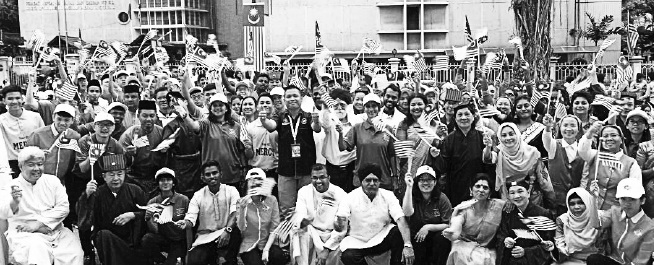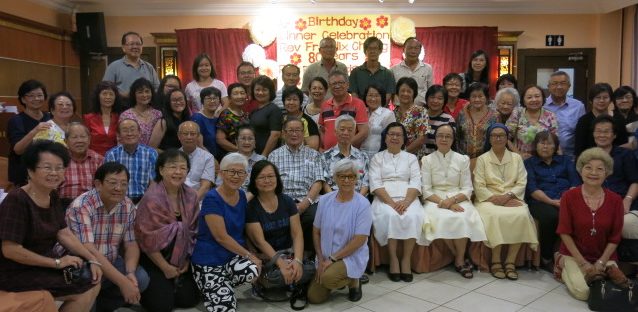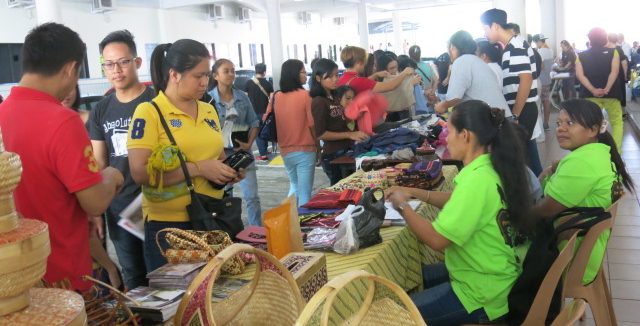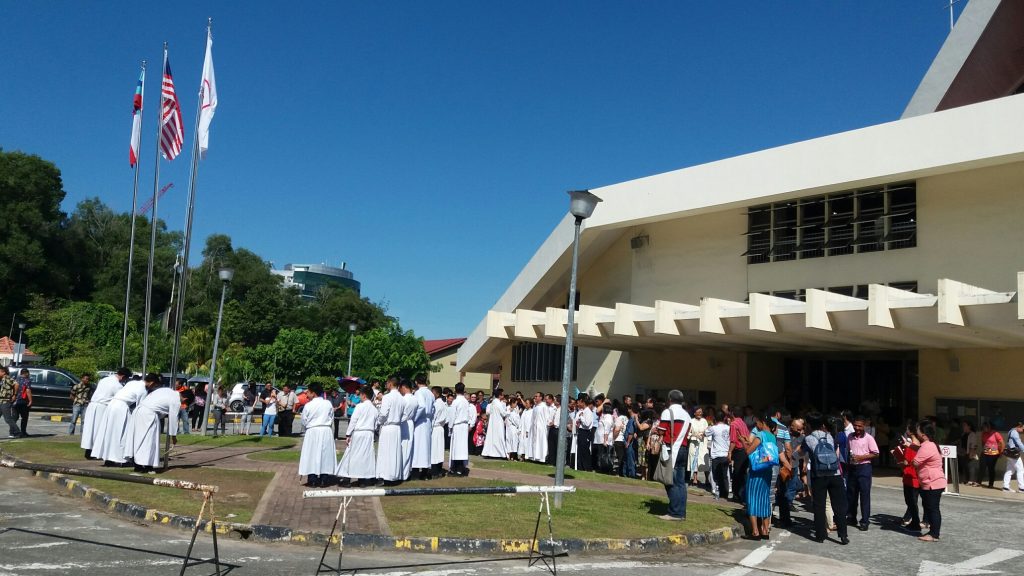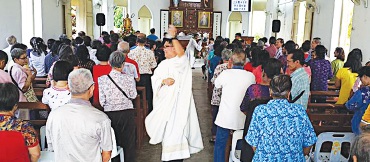(Sesi pendaftaran Unite Camp 4.0)
”Kerana Allah Yang Mahakuasa melakukan hal-hal besar padaku. Sucilah Nama-Nya.”(Lukas 1:49), telah menjadi tema bagi program Unite Camp 4.0 kali ini yang berlangsung di paroki Katedral St. Mary Sandakan pada 31.8.2017-3.9.2017. Unite Camp kali ini lebih membawa semua peserta untuk lebih mengenali Bonda Maria. Seramai 95 peserta tidak termasuk tim pelaksana yang telah melibatkan diri dalam program Unite Camp siri Ke-4 ini. Peserta-peserta kali ini datang dari setiap gereja dan paroki seperti Katedral St. Mary Sandakan, St. Mark Sandakan, St Martin Telupid, Our Lady Of Fatima Beluran, St Immanuel, Jaya Bakti, St Joseph, Nangoh, St Paul, Ulu Dusun, St Petrus, Sandakan, St Dominic, Lahad Datu, Holy Trinity, Tawau dan St Stephen, Tass Tawau.
(Pengacara pada hari pertama: Anna Teresa Peter Amandus)

( Penerangan mengenai Unite Camp 4.0 yang disampaikan oleh Saudari Anna Teresa & ice breaking bersama peserta unite camp 4.0)

(Gimik Pembukaan Unite Camp 4.0 dengan melepaskan belon berbentuk rosary ke udara)

(Doa pembukaan oleh Rev Fr Sunny Chung)

(Sedikit penerangan mengenai gimik pembukaan Unite camp 4.0 yang disampaikan oleh Sr.Lilian Unsoh, fcic kepada semua peserta)

(Sepanjang Gimik Pembukaan Unite Camp 4.0)

(Perarakan masuk kedalam dewan bersama statue Mother Mary selepas acara melepaskan belon sambil menyanyikan lagu Ave Maria )



Selepas itu, sedikit ucapan alu-aluan oleh coordinator unite camp kali ini iaitu Saudari Carnivalyn Arbah dan juga dari Saudara Micheal Lai bagi mewakili Saudara Pilis Malim yang tidak dapat menghadirkan diri pada waktu itu.

(Misa Pembukaan yang dirayakan oleh Rev Fr David Garaman dan Rev Fr Sunny Chung)
Dalam homili Rev Fr Sunny Chung, telah menyeru kepada peserta-peserta Unite Camp 4.0 kali ini agar menanamkan sikap dalam diri iaitu sentiasa tidak berhenti bersyukur kerana masih diberikan peluang dan masa untuk melihat kembali diri sendiri apabila berada di hadapan Tuhan. Beliau juga membawa peserta agar merenung semula apa yang mereka ingin cari dalam program kali ini. Selain itu, Rev Fr Sunny Chung juga menyatakan bahawa “Perayaan Misa Kudus adalah puncak kerohanian kita”, oleh itu beliau berharap agar semua peserta unite camp 4.0 haruslah bersungguh-sungguh dalam penyertaan program kali ini dan mengenal Bonda Maria dengan lebih dalam lagi serta mendapat sesuatu yang baru dari program ini.

(Sesi reflksi diri sepanjang satu hari unite camp berjalan dalam kumpulan masing-masing yang disampaikan oleh saudari Anna Teresa)

(Ice Breaking dan lakonan oleh tim social tentang”halangan-halangan mengikuti camp belia)

Gambar beramai-ramai dan diakhiri dengan doa malam.
Article reproduced from Diocese center of Sandakan


